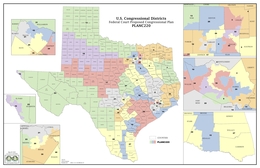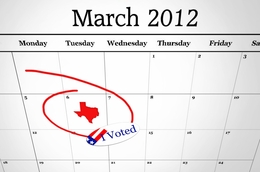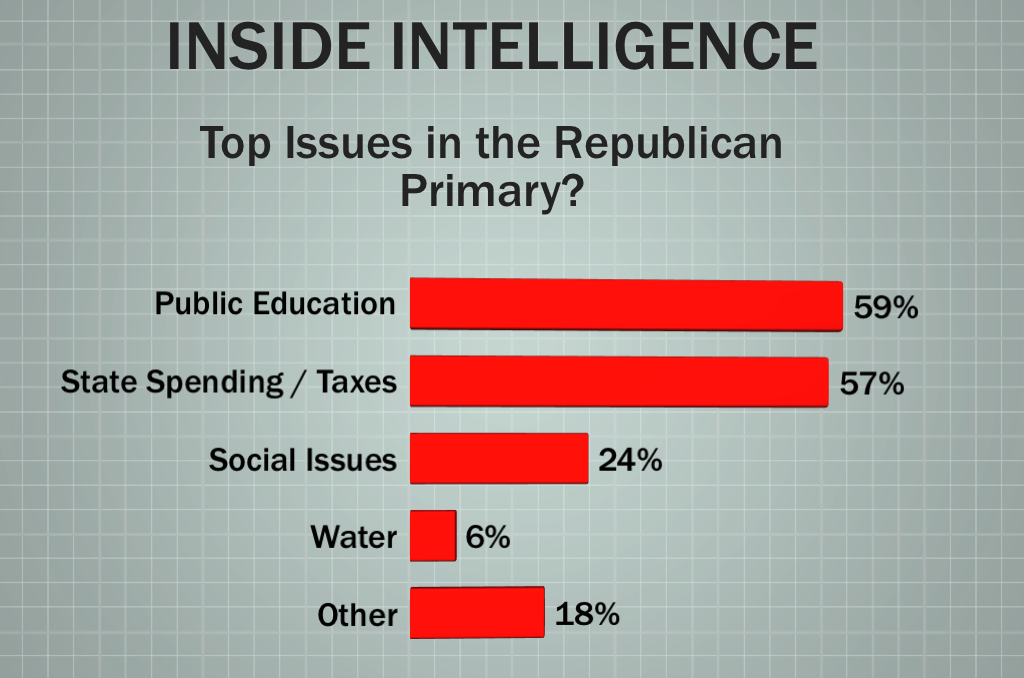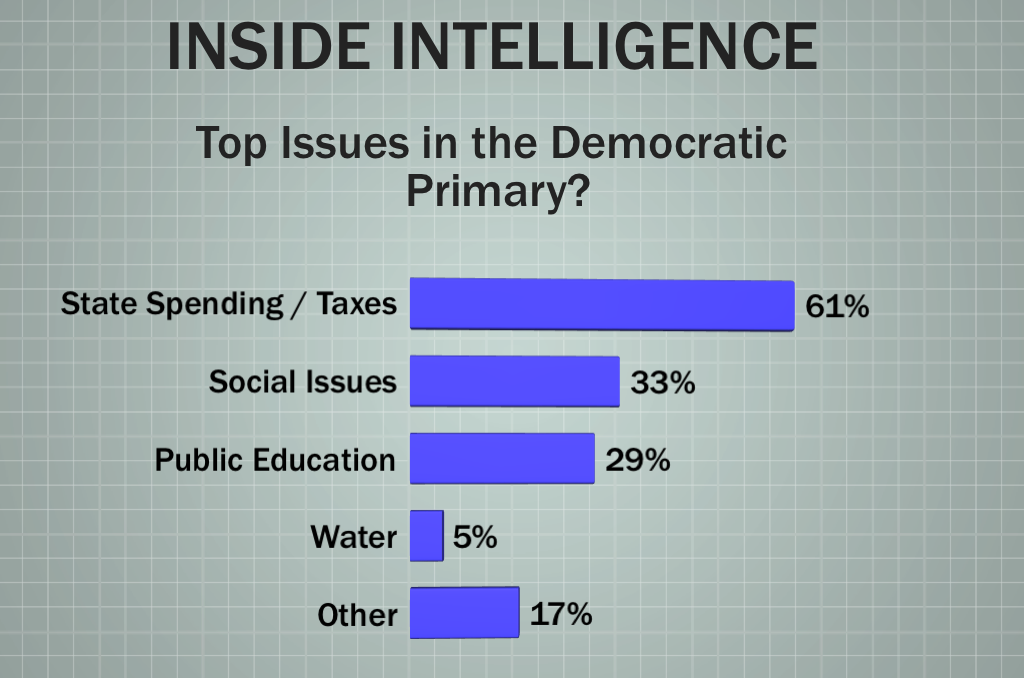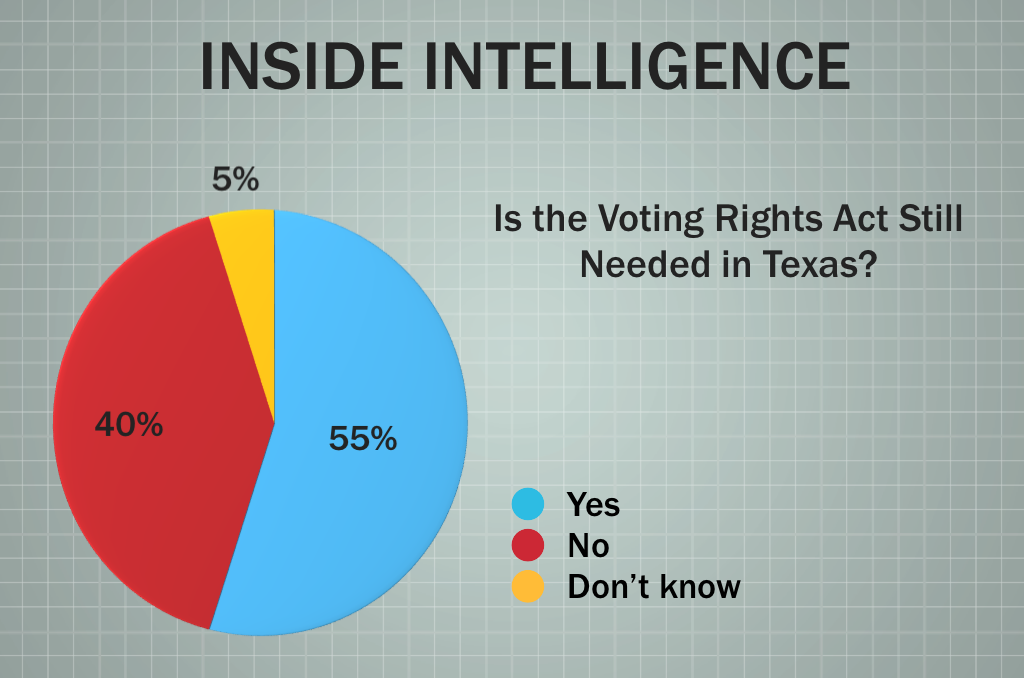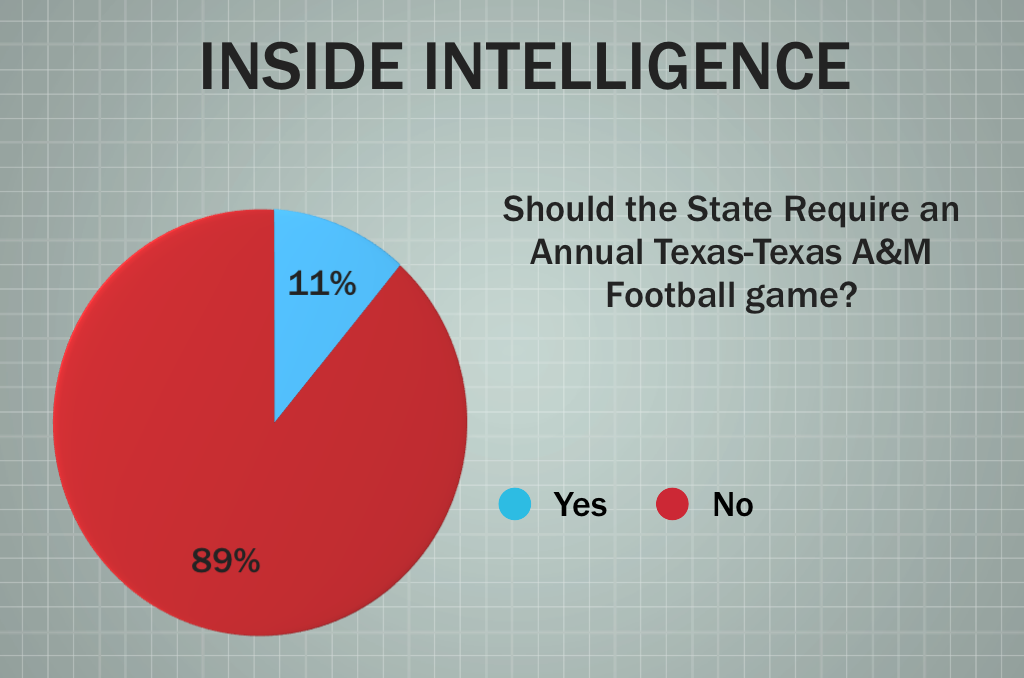Redistricting is, for the moment, in the hands of the U.S. Supreme Court, but the election season is underway.
The federal panel in Washington, D.C., hasn't held hearings on the maps. Since the filing period for candidates was looming, that panel's timing forced a three-judge panel in San Antonio to draw maps for the 2012 elections. Those came out over the Thanksgiving holiday. Attorney General Greg Abbott asked the Supremes to block those San Antonio maps, even if it means delaying some of the primaries from March to May.
That's pending.
Abbott, meanwhile, says approval of the Legislature's maps by the DC panel could erase the work done by the San Antonio panel, forcing new maps for the 2012 elections even if the Supreme Court doesn't rule for the state.
Candidate filing started Monday (see the list of people who've filed so far). The presidential and other statewide elections — and the elections for the State Board of Education, where the maps aren't being contested, will likely happen on schedule no matter what happens with the congressional and legislative elections.
There are side fights. The state accused the Department of Justice of foot-dragging. DOJ responded with a sharp letter saying the delays have more to do with the state's waiting two months after lawmakers voted on new maps to ask for preclearance, and with Abbott's decision to seek a summary judgment (which got denied) instead of accepting the DC panel's offer of a speedy trial.
It's not unusual to being bickering in December over redistricting. What's new this year is a set of federal and state laws intended to give election officials sufficient time to mail ballots and other materials to overseas citizens. The law requires more time between the start of candidate filing and elections, and more time between the primaries and the runoffs. It puts the redistricting pugilists on tighter deadlines.
Abbott's legal team suggested to the Supremes that the primaries for House and Senate and the congressional delegation could be postponed until the May 22 primary runoff date. As a calendar proposition, that would probably work. It's worth thinking about the effect on turnout, though, and on a lower turnout's effect on who wins those primaries. The Democratic and Republican faithful will turn out, for sure, but the people who come to elections for main events – presidential elections, for instance — seem more likely to vote in March than in May.
* * *
The attached charts compare the partisan climate in current legislative and congressional districts with what it would be in the maps drawn by the Legislature and the courts.
As a result of reapportionment, Texas got four new seats in Congress, which explains the open seats. District numbers were changed in some cases, and the numbers shown are those for the current map. The TWIs are tied to each member; even if the numbers changed in the new maps, this indicates how each incumbent would be affected if they run again and if either the maps passed by the Legislature or those issued by a panel of three federal judges in San Antonio are used.
An example: U.S. Rep. Blake Farenthold, R-Corpus Christi, currently has a district with a Democratic TWI of 3.6. The average Democrat beat the average Republican by 3.6 percent in the last two election cycles. In the map drawn by the Legislature, it got a Republican TWI of 19.8, and the San Antonio judges drew a district that has a Republican TWI of 35.7.
Another one: U.S. Rep. Lloyd Doggett, D-Austin, is in a district with a Democratic TWI of 10.5. The Legislature drew him into a Republican district — the TWI is 19.9 — but the court made an even stronger Democratic district than Doggett has now, with a Democratic TWI of 28.2 percent.
In the current map, 22 of 32 districts have Republican TWIs, based on the 2008 and 2010 elections. The new plans have 36 seats. The Legislature's plan has 26 Republican seats, leaving the Democrats with the same number of districts they have in the current plan. In the court's plan, there are 24 districts with Republican indexes and 12 with Democratic indexes.
Maps and stats on the various maps are available from the Texas Legislative Council. For reference, the current plan is C100; the Legislature's plan is C185, and the Court's plan is C220. And Ryan Murphy of our staff put together geographical data on the current and court plans so you can see what happened from the statewide level all the way down to a street address.
* * *
The maps for the Texas Senate changed the least, at least in political terms, as the Legislature and then the courts drew maps. And the Senate map remains the least competitive, in November elections, of any of the three plans. Only two districts in the maps drawn by legislators and judges had partisan differences of less than 10 percentage points.
The biggest change from the current maps to the Legislature's increase the Republican strength districts represented by Wendy Davis, D-Fort Worth, Chris Harris, R-Arlington, and Joan Huffman, R-Houston. For the Republicans, that was a safety move. For Davis, it was a challenge. She won her seat in a district that on paper should belong to a Republican. The Legislature wanted to strengthen it, but the judges in San Antonio redrew it so that, by the numbers, it's just like Davis' current district.
The Senate has a dozen Democrats right now, but only 11 districts where Republicans, on average, beat Democrats over the last two elections. That's the same number of districts the Democrats would get in either the Legislature's map or the court's.
The references here if you're poking around the TLC site: S100 is the current map; S148 is the Legislature's version; the court's is S164.
* * *
The Texas House currently has 101 Republicans and 49 Democrats. Purely by the numbers, 50 of the current districts have Democratic Texas Weekly Indexes. The Legislature's version has the same number. The Court's version has 58.
The partisan stakes amount to the difference between getting beat by five touchdowns or by six.
But the maps and the numbers aren't all that scientific. You can look and see what has happened in past elections, average it, and see how one map compares to another. The new maps from the Legislature and from the courts are designed to elect more Republicans than the current map.
The electorate changes, though. The current map elected 101 Republicans to the state House in 2010, but only 76 of them in 2008. And those were weird elections in a lot of ways. Exuberant Democrats took the first and angry conservatives — Republicans and Teas and Libertarians — overwhelmed the second. The statewide average over the two elections gave Republicans an edge; the average Republican in a statewide race beat the average Democrat by 17.1 percentage points. It was lower — 8.1 points — in 2008. Last year, it was higher: 23.9.
Quite the mood swing, like the line about having one hand on ice and the other on the stove: On average, you're comfortable.
The maps change, too, or could. One reasonable line of speculation has the 2012 elections being run with one set of maps and the 2014 elections being run with another, drawn either by the courts or the Legislature or some combination.
The House maps in play are the current H100, the Legislature's H283 and the Court's H302.


